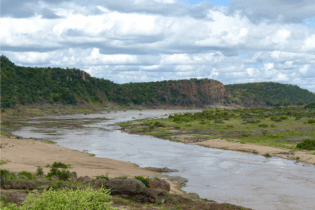
Dr Eunice Ubomba-Jaswa – Research manager from the Water Research Commission
The workshop, which was entitled “The Sediment Conundrum”, was attended by a wide range of researchers, consultants and companies working with sediment analysis.
Dr Eunice Ubomba-Jaswa from the WRC opened the proceedings saying that the sediment environment is highly variable and inevitably complex, both of which contribute to the difficulty in monitoring and managing contaminated sediments.
She explained that scientific decisions are based on the results received back from laboratories, yet it is only with the use of consistent methods for sample collection, manipulation, and storage that accurate data can be obtained in order to co-ordinate programs which prevent, remediate, and manage contaminated sediment.
Suspended load and water quality
Dr. Sebastion Jooste from the Department of Water and Sanitation (DWS) resource quality information services said what is missing in water quality research is the sediment “the stuff that sits at the bottom” (bedload). “We are interested in the suspended load when it comes to the water quality perspective” said Jooste and there is a need for a National Particulate Surveillance Programme and monitoring programme.
Moving beyond physical chemistry
Dr. Stanley Liphadzi, executive manager from the WRC, said that the thinking around sediment is getting more serious and research needs to move beyond the physical chemistry side to surrounding issues of water systems such as the impact of sediment on the economy and food production.
The WRC R&D portfolio is moving in that direction addressing issues of where sediments are coming from, who the users of water and land use practices are as well as the impact of sediment on infrastructure (dams, pipes etc.).
“The successful management of water resources depends on the co-operation from all spheres of government, water users and stakeholders,” the council said.
“The workshop and outcomes is the beginning of a standardised approach to ensure more accurate sediment quality data, facilitating comparisons between sediment projects and ultimately the development of region specific guidelines,” it concluded.






